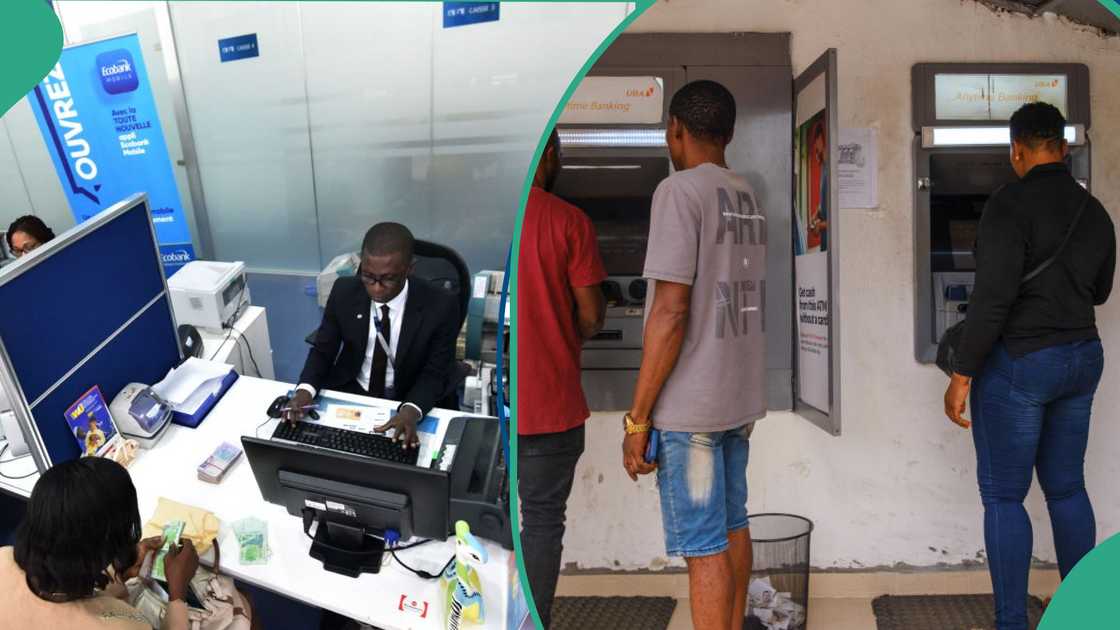Loans: CBN Releases Amount Nigerians and Government Owe Nigerian Banks
- The CBN has revealed that consumer credit by commercial banks to their customers has declined
- Data from the apex bank showed that personal loans dropped by 23%, while retail loans declined by 0.9%
- Most loans being collected from banks are by the government through bonds and other debt instruments
Legit.ng journalist Dave Ibemere has over a decade of business journalism experience with in-depth knowledge of the Nigerian economy, stocks, and general market trends.
The Central Bank of Nigeria has disclosed that consumer credit in Nigeria dropped to N3.5 trillion in October 2024.
This represented a 17.6% or N750 billion month-on-month (MoM) decline compared to the N4.25 trillion reported in September 2024.

Source: Getty Images
Despite this monthly drop, consumer credit increased year-on-year (YoY) by 6.06%.
The apex bank stated this in its just-released monthly report for October 2024, Vanguard reports.
According to the CBN report, the decline in consumer credit was attributed to reductions in both personal and retail loans.
Part of the report reads:
“Consumer credit outstanding declined by 17.64 per cent to N3.5 trillion compared with N4.25 trillion at the end of the preceding month.
"The decline in consumer credit followed the decline in personal and retail loans to N2.41 trillion (23.5%) and N1.09 trillion (0.91 percent), from N3.15 trillion and N1.1 trillion, respectively, in the preceding month."
Breakdown of consumer credit
CBN revealed that personal loans continued to dominate consumer credit, accounting for 68.95% of the total in October, a reduction from 74.14% in September.
Retail loans made up the remaining 31.05%.
Government borrowing surges to record N42trn
In contrast to the decline in consumer credit, banks' lending to the government reached a record N42 trillion in September 2024, reflecting a year-on-year increase of 89.8% from N22.13 trillion in September 2023.
Monthly data revealed a sharp rise in government borrowing, with commercial banks' credit to the government jumping from N31.15 trillion in August to N42 trillion in September—an increase of 34.86%.
Implication of rising consumer credit
The increase in government borrowing underscores the growing reliance on domestic financial institutions for funding.
Rising credit levels to the government suggest escalating national debt, as these funds are often utilised for infrastructure development, social programs, and addressing budget deficits.
One major avenue for this borrowing is issuing government bonds, which have seen increased demand from banks and financial institutions.
Given the trade-off between financing public debt and private sector lending, this trend could indicate potential long-term implications for the financial sector and broader economic stability.
CBN releases new interest rates for Nigerian banks
Earlier, Legit.ng reported that the Central Bank of Nigeria released the maximum and minimum lending rates for various banks.
The lending rate is the interest banks charge when they advance loans to their customers needing funds.
Banks charge prime lending rates to their largest, most secure, and most creditworthy customers on short-term loans.
Proofreading by James, Ojo Adakole, journalist and copy editor at Legit.ng.
PAY ATTENTION: Сheck out news that is picked exactly for YOU ➡️ find the “Recommended for you” block on the home page and enjoy!
Source: Legit.ng




